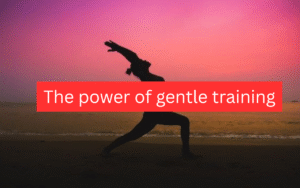Aging is inevitable, but vitality is not. For the mature woman, dance is more than an art—it is a practice that nurtures the body, mind, and soul. Rhythm, movement, and grace keep her presence vibrant, her posture elegant, and her spirit youthful.
Why Dance Matters
Studies show that dance improves cardiovascular health, muscle strength, and balance, while simultaneously enhancing mood and cognitive function (National Institutes of Health — www.nih.gov). Unlike repetitive exercise, dance engages creativity, memory, and coordination, offering holistic benefits that extend beyond the physical body.
The Feminine Power of Rhythm
Dance allows women to embody their inner vitality. Each movement expresses energy, emotion, and self-confidence. According to Harvard Health Publishing (www.health.harvard.edu), regular dance practice reduces stress, improves posture, and increases self-esteem—creating a profound sense of presence and allure.
Practical Ways to Dance Through Life
- Daily Movement: Even a 10-minute freestyle dance in your living room energizes both body and mind.
- Mindful Dance: Focus on posture, breath, and flow to integrate elegance into each step.
- Social Dance: Partner or group dance strengthens connections and emotional resilience.
- Expressive Styles: Ballet, contemporary, or cultural dances cultivate creativity and presence.
- Combine with Breath and Awareness: Align movement with mindful breathing to enhance health benefits.
Aging with Grace and Joy
Dance is a celebration of life, not just a physical activity. The mature woman who dances embraces her body’s wisdom, cultivating strength, flexibility, and rhythm. She celebrates every stage of life with awareness, turning movement into a ritual of joy and self-expression.
Conclusion
Dancing through aging is more than keeping fit—it is a soulful practice that nourishes presence, vitality, and confidence. By moving with rhythm and intention, the mature woman keeps her spirit young, her posture radiant, and her life full of grace.
Sources:
- National Institutes of Health — www.nih.gov
- Harvard Health Publishing — www.health.harvard.edu
- American Psychological Association — www.apa.org
- Cleveland Clinic — my.clevelandclinic.org




